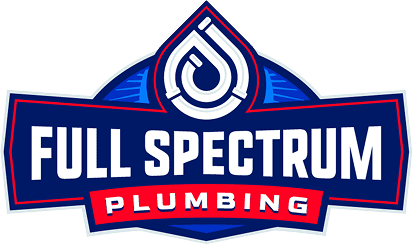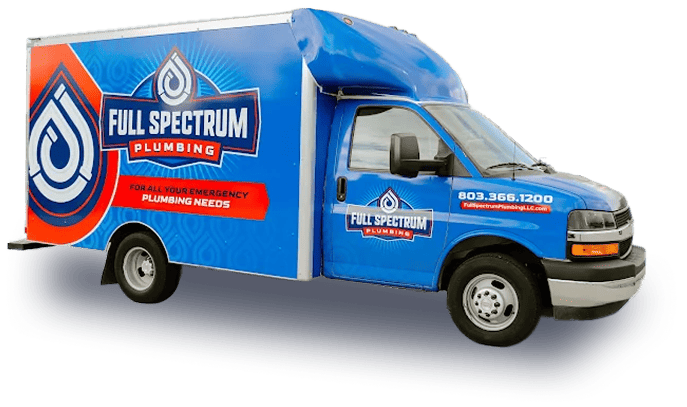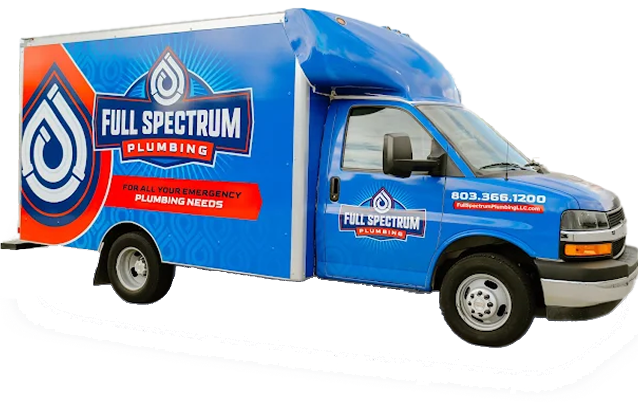Proudly Serving Rock Hill and Surrounding Areas
Low Water Pressure Solutions: Why You Should Call an Emergency Plumber
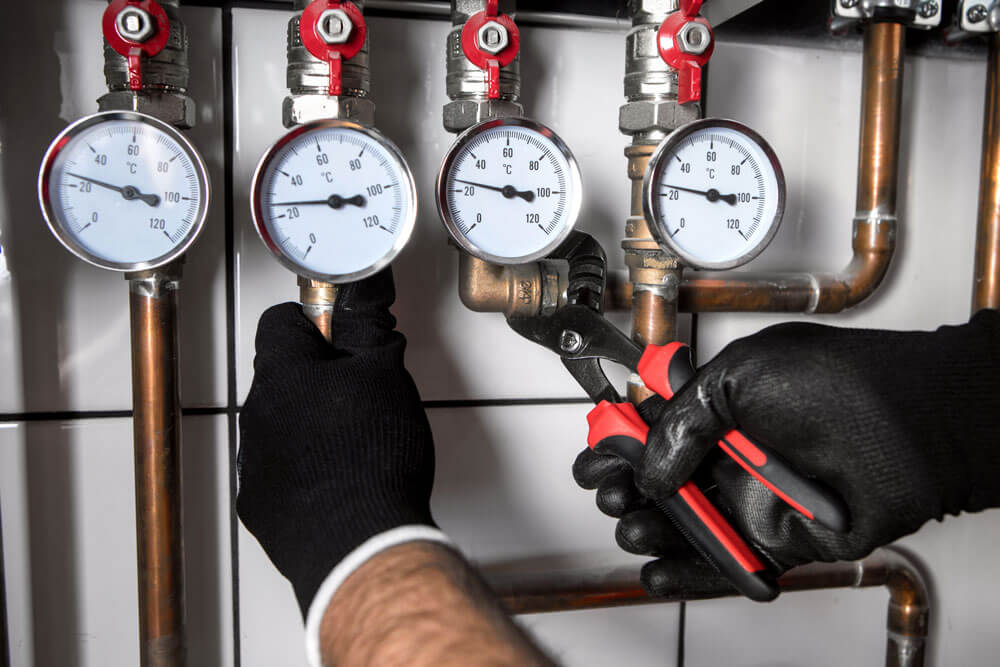
Low water pressure in your home can be more than just an inconvenience; it can signal underlying issues that need immediate attention. If you’re experiencing weak water flow, it’s important to understand the causes, impacts, and why it’s crucial to contact an emergency plumber.
What Causes Low Water Pressure In A Home?
Knowing the reasons for low water pressure will enable you to more successfully find and solve the problem. Several factors can contribute to this common problem:
- Sediment and Mineral Build-Up: Over time, sediment and mineral deposits from hard water can accumulate inside your pipes. These deposits create blockages that restrict water flow, leading to decreased pressure throughout your home. This issue is particularly prevalent in older homes with aging plumbing systems, where pipes may have corroded or deteriorated, exacerbating the problem.
- Water Supply System Issues: Problems with your home’s water supply system can also cause low water pressure. Issues with the municipal water supply, such as reduced pressure from the local water authority, can affect your home’s water flow. Additionally, a malfunctioning pressure regulator—a device that controls the water pressure coming into your home—can lead to inconsistent or low pressure. If this regulator fails, it may not maintain the appropriate pressure level, resulting in weak water flow.
- Plumbing Leaks: Leaks within your plumbing system can divert water flow away from its intended destination. When water escapes through leaks, the pressure at your faucets and fixtures drops. These leaks can be hidden behind walls or under floors, making them difficult to detect without a professional inspection. Over time, even small leaks can contribute to significant pressure loss and potential water damage.
- Faulty Fixtures and Fittings: Sometimes, the issue may not be with the pipes but with the fixtures themselves. Old or malfunctioning faucets, showerheads, or other fittings can restrict water flow. If these components are clogged, damaged, or simply worn out, they may not deliver water efficiently, creating the appearance of low water pressure throughout your home.
Identifying the specific cause of low water pressure is crucial for effective repair. If you’re experiencing reduced water flow, consulting with a professional plumber can help diagnose and address the underlying issue, ensuring your water pressure is restored to optimal levels.
How Can Low Water Pressure Impact Daily Activities?
Low water pressure can disrupt your daily routines in several ways. For one, it can make simple tasks like showering or washing dishes a frustrating experience. You might find yourself waiting longer for your shower to reach an acceptable temperature or struggling to rinse soap and shampoo thoroughly.
Household chores that rely on water, such as cleaning and cooking, can also be affected. Filling up pots or washing vegetables may take longer, and the inconvenience can add up over time. Low water pressure can even impact your laundry routine, as washing machines may not operate as effectively with insufficient water flow.
In addition to these daily inconveniences, low water pressure can also lead to higher water bills if the issue is related to leaks. Water wasted from leaks can contribute to unnecessary expenses, making it even more crucial to address the problem promptly.
When Should You Contact An Emergency Plumber For Low Water Pressure?
Deciding when to call an emergency plumber can be challenging, especially if you’re unsure about the severity of the issue. If you notice a sudden and significant drop in water pressure or if multiple fixtures are affected simultaneously, it’s a good idea to seek professional help.
If the problem persists despite attempts to resolve it yourself, or if you suspect that the issue might be related to a larger problem, such as a hidden leak or a malfunctioning pressure regulator, don’t hesitate to call an emergency plumber. Plumbers are equipped with the tools and expertise to diagnose and address complex issues that might be beyond the scope of DIY repairs.
In cases where low water pressure is accompanied by other symptoms, such as strange noises in the pipes or discolored water, it’s essential to contact a plumber immediately. These signs can indicate more serious issues, such as pipe damage or contamination, which require prompt professional intervention.
What Are The Risks Of Ignoring Low Water Pressure Issues?
Ignoring low water pressure might seem like a minor issue at first, but it can lead to several significant risks and complications. Addressing these risks proactively can save you from more severe problems down the line.
- Hidden Leaks and Water Damage: One of the most serious risks of low water pressure is that it can be a sign of a hidden leak in your plumbing system. Leaks, if not addressed, can cause substantial water damage to your home’s structure. This can cause problems like wood that rots, supports that aren’t strong enough, and mold growth. Not only does mold ruin your property, it also puts your family’s health at risk, including allergic reactions and breathing problems. Repairing water damage and mold can be both time-consuming and costly.
- Strain on Your Plumbing System: Low water pressure can indicate underlying problems such as corroded pipes or a malfunctioning pressure regulator. Over time, these issues can worsen and place additional strain on your plumbing system. This can lead to more severe damage, such as burst pipes or extensive leaks, which require expensive repairs or even full replacements. Early intervention can help you avoid these more costly and extensive fixes.
- Increased Water Bills: If low water pressure is due to leaks, ignoring the issue can result in significant water wastage. This wasted water will reflect in your utility bills, leading to higher costs. Additionally, if the low pressure affects your home’s ability to perform essential tasks effectively, such as washing dishes or taking a shower, it can lead to frustration and inconvenience.
In summary, low water pressure is not just a minor inconvenience; it can be indicative of serious underlying issues that require prompt attention. Recognizing the risks associated with ignoring these problems can help you take action early, preventing further damage, avoiding costly repairs, and ensuring your home’s water system functions smoothly.
If you’re facing low water pressure, it’s essential to contact a professional plumber to address the issue efficiently and protect your home.
Why Full Spectrum Plumbing Services Is Your Best Choice
When dealing with low water pressure, turning to Full Spectrum Plumbing Services ensures you receive expert assistance tailored to your needs. Our team of skilled plumbers has extensive experience diagnosing and resolving water pressure issues effectively. We understand the complexities involved and use state-of-the-art equipment to identify the root cause of the problem quickly.
What sets us apart is our commitment to exceptional customer service. We offer prompt responses to emergency calls, ensuring that your issue is addressed as soon as possible. Our transparent approach means you’ll receive a clear explanation of the problem and our recommended solutions before any work begins. We are proud of our meticulous nature and want to leave your house in better shape than we discovered.
Choosing Full Spectrum Plumbing Services means opting for reliability, expertise, and a dedication to resolving your low water pressure issues efficiently. Don’t let water pressure problems disrupt your daily life—contact us today and experience the difference that professional plumbing care can make.
Frequently Asked Questions About Low Water Pressure Solutions
How Much Does It Cost to Fix Low Water Pressure?
When there is low water flow, the cost can change depending on how bad the problem is. Repairs that most people need will cost them between $150 and $500 on average. This range includes the cost of diagnosing the issue, making necessary repairs, and sometimes replacing fixtures or components. If extensive pipe repairs or replacements are needed, the cost could be higher. It’s always a good idea to get a detailed estimate from your plumber before proceeding with any work.
Can I Fix Low Water Pressure Myself?
While some minor issues, like replacing a faulty faucet or cleaning a shower head, can be handled by a DIY enthusiast, more complex problems such as clogged pipes or pressure regulator issues require professional attention. Attempting to fix these problems yourself can sometimes lead to further complications or damage. It’s best to consult with a professional plumber to ensure the job is done right and to avoid additional costs down the road.
How Long Does It Take to Fix Low Water Pressure?
The time required to fix low water pressure depends on the cause of the problem. Simple fixes, like unclogging a faucet or replacing a fixture, might only take an hour or two. More involved repairs, such as addressing a significant pipe blockage or replacing a pressure regulator, could take several hours. Your plumber will provide an estimated timeframe based on the specific issue and the scope of the repair work needed.
Ready to Restore Your Water Pressure?
If you’re dealing with low water pressure and need prompt, reliable service, Full Spectrum Plumbing Services is here to help. Our skilled professionals are ready to quickly figure out what’s wrong with your plumbing and fix it. Don’t let low water flow get in the way of your daily life any longer. Get in touch with us right away to make an appointment and experience the great service that makes us stand out.
Call Us Today for a Free Estimate!
Recent Posts
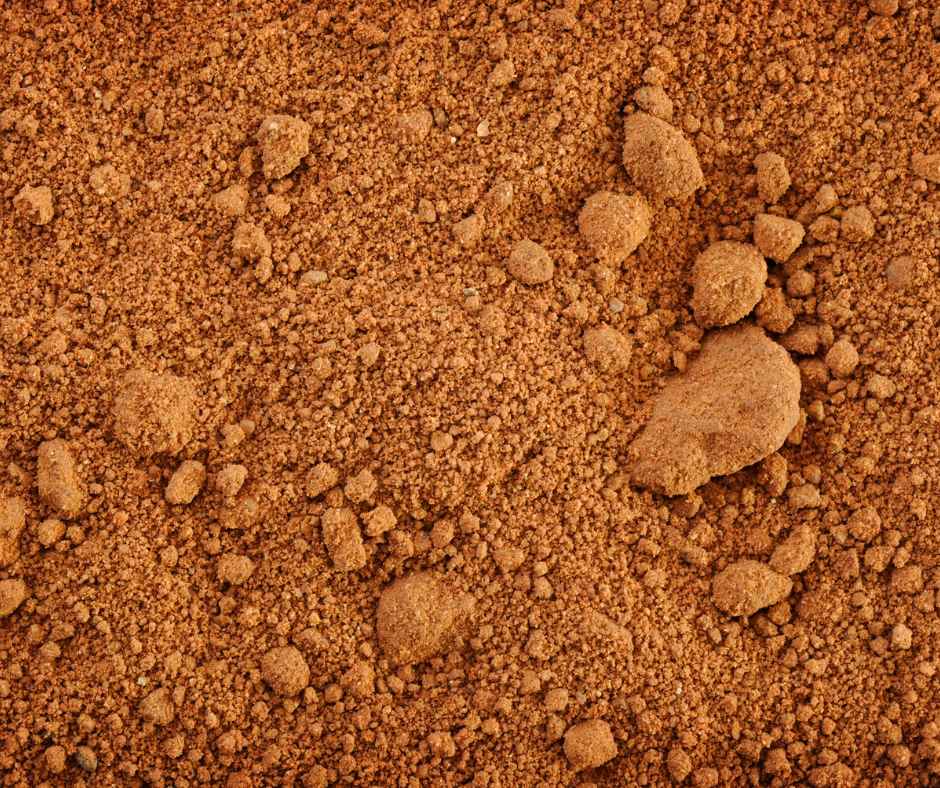
The Hidden Effects of Carolina Clay Soil on Your Sewer Line

Common Plumbing Problems Charlotte Homeowners Face Each Year

How Charlotte NC Residents Can Protect Their Homes From Winter Pipe Damage
Have a Question?
